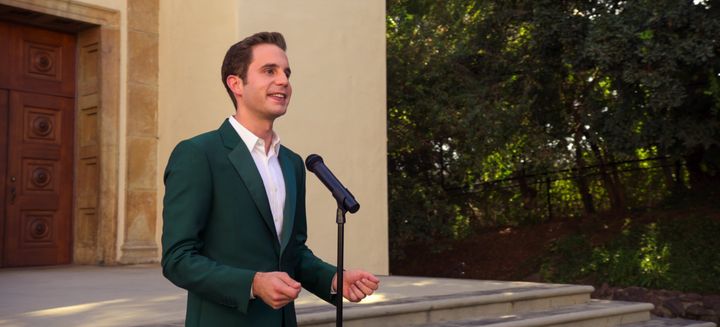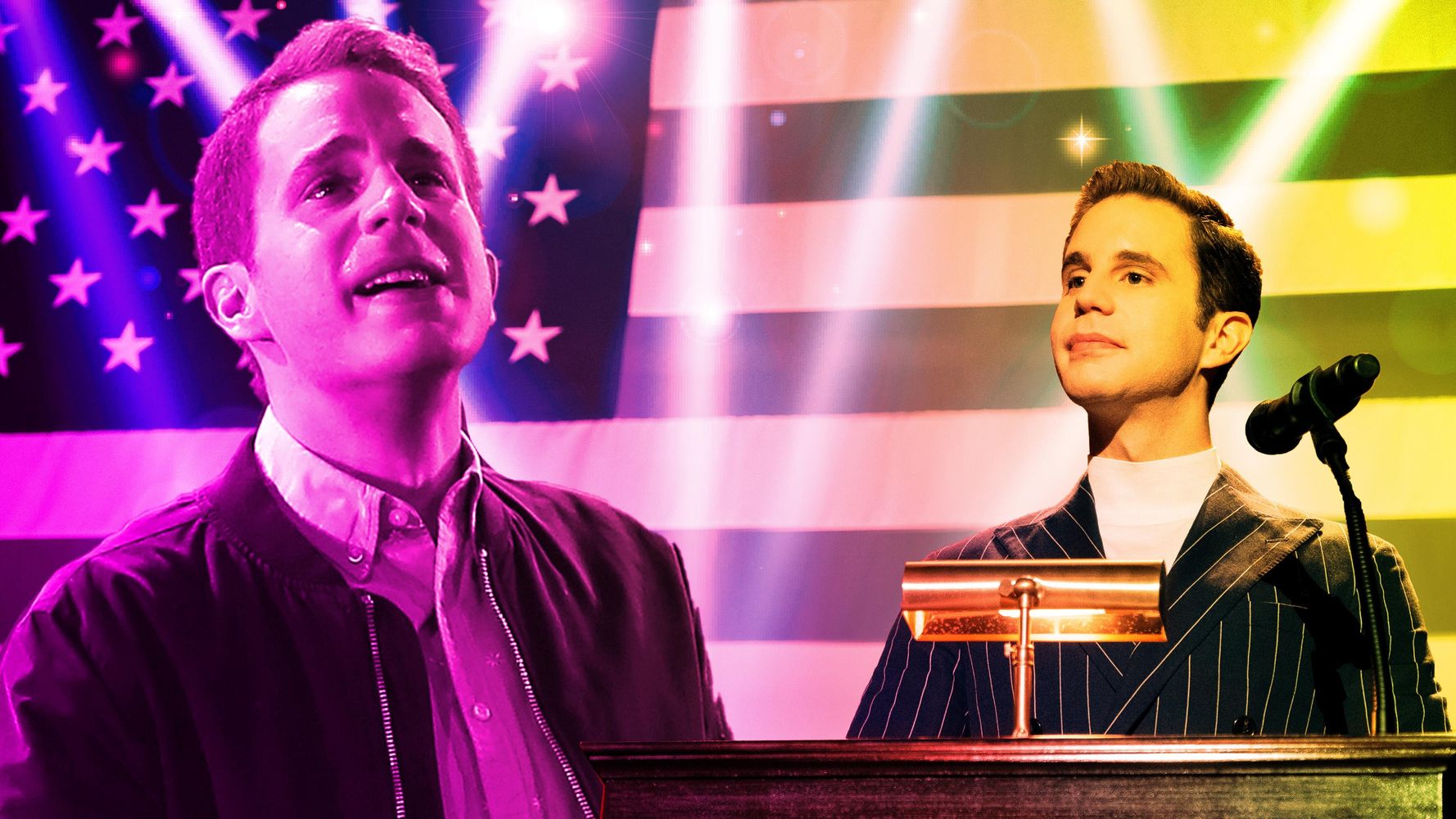[ad_1]
Spoilers for “The Politician” ahead.
Ben Platt can sing. That is a known fact.
At 26, he has appeared in the “Pitch Perfect” franchise and Broadway shows “The Book of Mormon” and “Dear Evan Hansen,” in the latter taking home a 2017 Tony award for his physical and emotional performance of an anxiety-ridden teenager facing a school tragedy.
Clearly, Platt can also act, which is probably why he was cast as the absurdly ambitious, slightly maniacal, disgustingly wealthy Payton Hobart in Ryan Murphy’s first project with Netflix, “The Politician.” The eight-episode show, which started streaming Friday, follows Payton as he tries to ruthlessly crush his competition and win the election for student body president at his prestigious high school in Santa Barbara, California. It is a goal that, in his mind, would bring him one step closer to his end game: becoming U.S.president.
The character is funny and aggravating, lovable yet entirely cringe-y. It’s a juicy role that, on paper, could throw Platt’s “nervous and mild-mannered” Evan Hansen persona out the window. Platt told The New York Times that Murphy pitched the character to him in that way, telling him, “I want you to turn that on its head and play someone who’s more egomaniacal and confident and self-serving, and has a bit more sex to him.”
It’s too bad then that the usually innovative Murphy failed to truly switch things up for Platt. The series, which critics are calling “irritating,” “erratic” and “scattered,” is a political reimagining of his groundbreaking series “Glee”; “a teen ‘House of Cards.’”
Instead of giving Platt the on-screen reinvention he deserves, Murphy fell for the ultimate temptation. He gave Payton Hobart a Ben Platt moment; he asked him to sing. Throughout the first season of “The Politician,” Platt performs in scenes that perhaps prove this was just going to be another vehicle to showcase his award-winning vocal talents.

Payton is Lea Michele’s show-offish Rachel Berry, if she were entirely focused on making it to the White House rather than Broadway. He is relentless in his pursuit to get into Harvard University, earning high test scores and carefully calculating his choice of extracurriculars (Model United Nations, working at a literary magazine) to ensure his application is flawless. He even studies Mandarin, for goodness sake.
Something Payton never boasts about, however, is his interest in musical theater. Actually, it isn’t until he breaks out into a goosebump-inducing rendition of Joni Mitchell’s “River” at a memorial service for a character named River (David Corenswet) toward the tail end of the pilot episode that we even know Payton can carry a tune — and a damn good one at that.
Up until that performance, viewers witness an unhinged Payton battle his tough opponents, his doofus twin brothers, his bisexuality. It’s captivating to watch a character so neurotic in his pursuit for hierarchical acceptance. But instead of focusing on that side of the character, Murphy once again embraced his own adoration of musical moments to the detriment of the plot.
Take, for instance, Episode 6 of the series, “The Assassination of Payton Hobart,” in which Payton decides he wants to “enjoy” the last few months of school amid his post-election depression. He figures auditioning for the school musical, Stephen Sondheim’s “Assassins,” would be a great way to loosen up a bit after his mother (Gwyneth Paltrow) recommends he “find some way to bring music into his life.”
By the director’s reaction, one would think Payton was already crowned “Broadway Bound” in senior year superlatives: “I was at the assembly for River when you sang that amazing song to him. You, sir, don’t have to audition.”
Payton is given the role of John Hinckley Jr. before he leverages his status to make sure his friend and former running mate, Infinity (Zoey Deutch), gets a part. It becomes clear this is another opportunity for Murphy to squeeze in a Plattastic performance, despite it making little sense to the overarching storyline. The episode goes on to show Payton abnormally comfortable with vocal warmups, rehearsals and trust falls before he performs “Unworthy of Your Love” with Infinity.
As a theater junkie, I enjoyed hearing Platt’s pitch-perfect tone. As a viewer of “The Politician,” I was utterly confused.
Another jarring scene comes in the finale episode when Payton ― a bit older and living in New York ― speaks to a bar crowd before sitting at a piano and belting out a cover of Billy Joel’s “Vienna.” It becomes clear that, at the end of the first season, Payton’s high-level education and unfaltering dream of the presidency takes a back seat to his late-night singing gigs.
Sure, Murphy loves this sort of thing, as referenced by his powerful musical numbers in “Pose” or the disparate ones in “American Horror Story.” And “Glee,” of course, was a masterclass in staging. In those instances, performances were welcome or unexpected enough to be applauded. But hiring some of the most talented Broadway stars of our time ― Platt, Michele, Billy Porter ― doesn’t mean song and dance always need to be in the job description.
A Ben Platt reinvention was pitched. A Ben Platt reinvention was not served.
REAL LIFE. REAL NEWS. REAL VOICES.
Help us tell more of the stories that matter from voices that too often remain unheard.
[ad_2]
Source link

